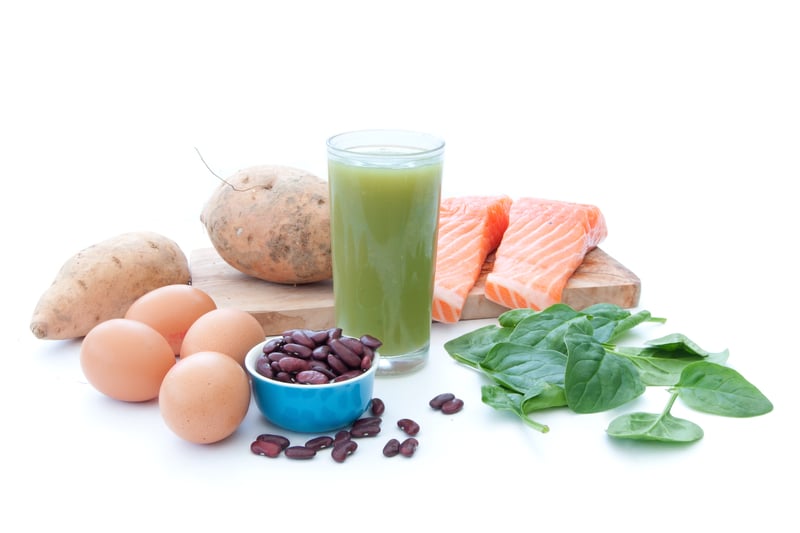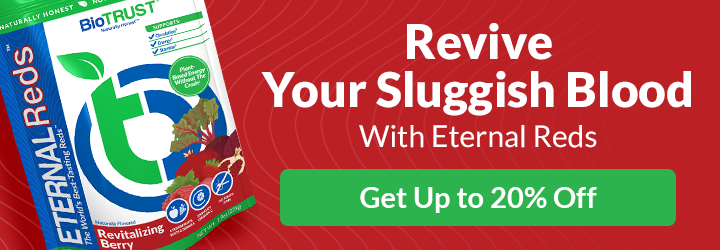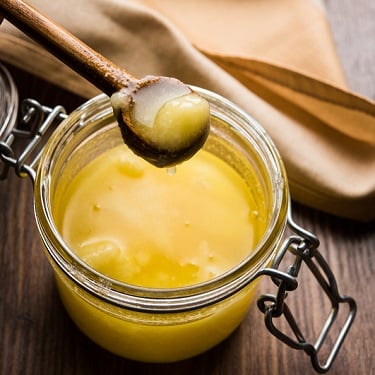21 Best Supplements and Foods for Kidney Health

Just behind your bottom ribs lie two bean-shaped organs that are vital for your health. The kidneys are needed to filter your blood to get rid of toxins, excess fluids, and other things you don’t want roaming throughout your body. Yet how often do most of us even think about our kidneys, at least unless or until there’s an issue? Not very often… or perhaps not at all. Most of us don’t even know there are supplements or foods for kidney health that could help. Let’s change that today. After all, our kidneys do a lot for us. Let’s return the favor by making sure they aren’t overtaxed.
Why the Kidneys Are So Important For Health
Unless you’ve had one removed, you have two kidneys that are each about the size of a fist. Beyond filtering blood, some of the important functions of the kidneys include:
- Removing waste products from the body
- Removing excess water
- Helping control blood pressure
- Helping make red blood cells
- Promoting bone health
- Maintaining salt and mineral balance
- Metabolizing vitamin D
One way to think of the kidneys is like a filter for your coffee machine. Before you make coffee, you line the coffeemaker with a filter that keeps the grounds out of the coffee. This allows the good stuff to come through (the coffee) but collects the waste (the grounds), so you can easily remove them as waste. The kidneys, though, don’t just filter out waste from food and drinks, they also take care of excess water, medications you may have consumed, and other toxins you may come in contact with.
When the kidneys aren’t working as well as they should, it can lead to imbalances. Those imbalances can, in turn, increase the risk of:
- High blood pressure
- Heart attack
- Bone health issues
- Anemia
- Increased occurrence of infections
- Imbalances in electrolytes like calcium, potassium, and phosphorous
- Loss of appetite
- Depression
- Decreased quality of life
- And kidney failure. 1
According to the American Kidney Fund, nearly 37 million Americans suffer from kidney disease. Those who are in the early stages may, however, be unaware as symptoms aren’t easily recognized. Making changes to the lifestyle, such as eating foods for kidney health, may help prevent chronic kidney disease or CKD, which is the term used for reduced kidney function or kidney damage.
Foods for Kidney Health
In general, you can help your kidneys by limiting alcohol and ultra-processed foods, which can cause the kidneys to have to work much harder. Certain medications, such as acetaminophen and aspirin, as well as infections (e.g., urinary tract infections) and diseases (e.g., diabetes and hypertension), can also be taxing to the kidneys. Other issues that can increase the risk of kidney damage include certain autoimmune diseases, genetic disorders, dysbiosis, heavy metals, smoking, and being overweight or obese. 2 – 7
You can also support your kidneys by consuming more foods for kidney health, including:
1. Apples – An apple a day keeps sweet cravings at bay. It also provides the fiber pectin, which may help lower blood sugar and blood fats (e.g., cholesterol levels), which can help reduce the risk of kidney damage.
2. Bell Peppers – Loaded with nutrients like vitamins B6, B9, C, and K, as well as fiber, water, and antioxidants, bell peppers may help your body remove toxins. Bell peppers are also a good source of lycopene, which is a carotenoid that may help support healthy blood pressure levels. 8
3. Berries – Rich in fiber and nutrients but low in calories, sugar, and sodium, berries also come with antioxidant and anti-inflammatory properties, making them a healthy choice for kidney health. Research with animals demonstrates this, showing that blueberries helped promote kidney function and supported the metabolism of glucose. 9
4. Cabbage – Rich in nutrients like vitamins C and K and fiber but low in potassium and sodium, cabbage is one of the top foods for kidney health.
5. Cauliflower – High in numerous nutrients like vitamin C, folate, and fiber, cruciferous veggies like cauliflower and broccoli may help the body remove toxins. With fewer toxins in the body, there’s less stress on the kidneys.
6. Cherries – Especially those that are sweet and tart provide healing nutrition. In fact, cherries have been found to decrease the risk of a gout episode by 35%. 10 Gout is a disruption in uric-acid metabolism that leads to painful inflammation of the joints (i.e., arthritis), especially in the hands and feet. Supporting kidney health may help decrease the length or severity of flare-ups.
7. Cranberries – This fruit has been shown to help prevent UTIs. While you usually worry about the bladder with a UTI, the infection can travel into the kidneys, stressing them over time. Cranberries may help prevent issues before they start. 11 They’re also beneficial for supporting healthy levels of inflammation and promoting heart and digestive health.
8. Cucumbers – This water-rich food is ultra-hydrating, which is a plus for the kidneys.
9. Dark leafy greens – Foods like arugula, chard, kale, and spinach are rich in a wide array of vitamins and minerals, and they’re also high in fiber and antioxidants, which all support healthy kidneys.
10. Fatty Fish – Such as tuna, salmon, sardines, and trout all provide omega-3 fatty acids, which are essential. Fish is also a great source of quality protein. And fatty fish, in particular, have been shown to help lower levels of blood fats like triglycerides. Omega-3 fats may also help lower blood pressure. High blood pressure puts greater stress on the kidneys. And stressed-out kidneys may increase blood pressure. Omega-3 fats may help balance the body to help prevent this vicious cycle.
11. Garlic – Garlic contains allicin, which is what gives it its unique smell. And animal studies have found that this compound can also help support the body’s ability to detox and reduce inflammation, which may help ultimately support kidney function. 12
12. Onions – Flavonoids and antioxidants support numerous functions in the body, including those of the kidney, and onions are a good source of these potent nutrients. 13 They also add a good dose of flavor.
13. Olive Oil – One of the best oils to use in cooking is olive oil due to its high oleic acid content. This polyunsaturated fatty acid may help decrease excess inflammation in the body. The Mediterranean Diet, rich in olive oil, is also known for helping support healthy kidneys. 14
14. Pomegranates – Another tasty fruit that provides loads of fiber, antioxidants, and vitamins K, E, B6, folate, and potassium.
15. Sweet Potatoes – Due to their high fiber and vitamin and mineral content, sweet potatoes are also a good source of potassium, which can help balance levels of sodium in the body, which can help support kidney health.
16. Water – Okay, it’s not a food, but drinking plenty of water is one of the most vital habits for healthy kidneys. Cells throughout our bodies use water to move toxins out and into the bloodstream. The kidneys then use the water to filter and shuttle out the toxins to be removed from the body via urine. Don’t just drink when you feel thirsty (as that indicates you’re already dehydrated). Instead, sip on water throughout the day.
Please note that these foods are good for keeping healthy kidneys, well, healthy. If you already have a damaged kidney, kidney disease, or are on dialysis, you will want to avoid high-potassium foods like sweet potatoes, dark leafy greens, and pomegranates. You’ll also want to avoid foods that are high in sodium and phosphorus.
High-protein foods have been found to have many potential health benefits. However, for people who already have CKD, limiting protein foods is recommended. Other foods to limit if you already have kidney issues include red meat, processed meats (e.g., hot dogs, bacon, and lunchmeats), sodium-rich processed foods (e.g., canned soups, prepared pasta dishes, and canned vegetables with added salt), and refined sugars. 14, 15
If you do already have kidney issues, please work with your doctor and dietitian to ensure you are eating a renal diet that’s made up of kidney-friendly foods. In addition, it’s also important to address other conditions, such as heart disease, diabetes, or obesity, that are often associated with stressing the kidneys.
Kidney-Friendly Supplements?
In addition to the foods above, some supplements may help support healthy kidneys, as long as they’re from quality, reputable brands. More research is needed, but a few to consider include:
- Alpha-lipoic acid, which may help increase antioxidant enzymes to protect against oxidative stress. 16
- Andrographis, which has been shown to help reduce alcohol toxicity in mice. More research is needed, however, to see if it’s as beneficial for humans. 17
- Moringa, which may help the body release toxins, again according to animal studies. 18, 19
- N-Acetylcysteine (NAC), which is an amino acid that’s a precursor to the major antioxidant glutathione. It may help reduce oxidative stress to support kidney health. 20, 21
- Probiotics have been designed to support gut health. Since dysbiosis is associated with stress on the kidneys, probiotics may help support the ability to reduce toxins and promote kidney health. 22, 23
Foods for Kidney Health: A Wrap-Up
The kidneys may be small, but they’re also mighty. They’re role in filtering blood and removing waste from the body shouldn’t be overlooked. Fortunately, there are many delicious options for supporting your healthy kidneys to prolong their usefulness.
If you are already experiencing issues, though, there are different dietary guidelines to follow to prevent further damage, so please work with your healthcare practioner and dietician to help you navigate through your food and other lifestyle options.





 US Doctor: "Eating This Every Day Can Snap You Into Ketosis"
US Doctor: "Eating This Every Day Can Snap You Into Ketosis" 3 Key Nutrients to Help Lubricate Your "Tin Man" Joints
3 Key Nutrients to Help Lubricate Your "Tin Man" Joints AVOID Plant-Based Protein Powders (unless...)
AVOID Plant-Based Protein Powders (unless...)

